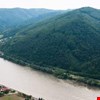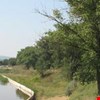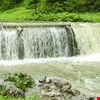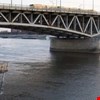
Due to the growing build-up area and changing land use in the Veluwe nature conservation area, the old water management infrastructure no longer coped. Action was thus taken and the traditional technical solution was replaced by a new integrated approach, which combines nature and landscape conservancy with modern water management. This case highlights the importance of utilising inhabitants’ knowledge when drafting new projects.

The Danube region is characterised by long-term cooperation. One of the most important agreements was the Danube River Protection Convention, created with an intention of intensifying cooperation in the field of water protection and water use between countries in the Danube basin. Under auspices of this convention, the Joint Danube Survey was launched. This case demonstrates the importance of collecting data to assess how to move forward with any project.

The Tisza River is faced with deteriorating water quality as well as floods with increasing frequency and levels. These issues are exacerbated by climate change. Action has been taken, both by national authorities, international actors and NGOs to develop more adaptive management schemes. The key lesson is that in water management, the biggest problem is the weak coordination among different fields and interests – such as agriculture, nature, navigation, flood defence.
The European rivers Mura, Drava and Danube form a 700 km long “green belt” connecting more than 800,000 ha of highly valuable natural and cultural landscapes in five countries (Austria, Slovenia, Croatia, Hungary and Serbia). This area is a symbol of unity among the countries and is planned to become a protected Transboundary UNESCO Biosphere Reserve “Mura-Drava-Danube” (TBR MDD).

The Bodrog River Basin is exposed to severe flooding caused by jumbled urbanisation and low connectivity between land (agriculture and forestry), urban and water planning. Management is made more complex by the transboundary nature of the basin. A project was, however initiated to strengthen cooperative management and to mitigate consequences of floods through achieving consistent and holistic management of flood risk in three basin countries. This case illustrates the importance of transboundary flood management.

In the River Basin District of the CEE region, the countries are cooperating to develop transboundary management, using the International River Basin Commission as a platform. The aim is to address national IWRM priorities, strengthen cooperation with major stakeholders and initiate changes in policies and legislation. This case illustrates the difficulties to balance national priorities in a transboundary context.

The Danube region is characterised by long-term cooperation. One of the most important agreements is the Danube River Protection Convention, aiming to achieve sustainable and equitable water management. To achieve this, the Danubian countries have taken appropriate legal, administrative and technical measures to at least maintain and improve the ecological and water quality conditions. The main lesson learnt is that strong cooperation among all the involved parties is required.

Climate Change is expected to have severe impacts on river discharges and water quality and quantity. In an effort to proactively find solutions to the current and future challenges of water, the project Environmental state and sustainable management of Hungarian-Slovakian transboundary groundwater bodies was initiated. The key lesson is the importance of evaluating all resources, including the links between groundwater and surface water.

In Ukraine, reforms in the sector of water supply and sanitation have focused on centralising water supply and sanitation. Efforts have been made to decentralise water management, delegate to local authorities as well as increase supply in rural areas. This has been done through awareness campaigns, capacity building and innovative techniques of wastewater reuse. The key lesson learnt from this case is that IWRM principles need to be considered when planning for water infrastructure.